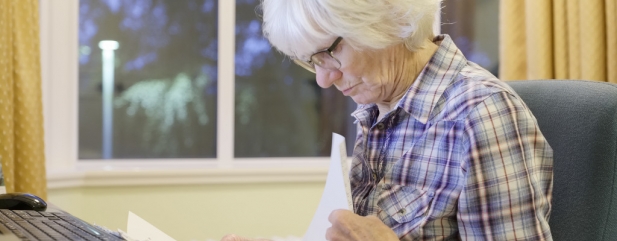Archived article
Please note that tax, investment, pension and ISA rules can change and the information and any views contained in this article may now be inaccurate.
Would my children pay tax on inheriting my pension?

I’m getting my affairs in order and am thinking about my SIPP, which is currently worth just over £200,000. I want to pass this on to my two children after I die. Are there any circumstances where there might be an income tax or IHT charge on that money?
Anonymous
Tom Selby, AJ Bell Senior Analyst says:
If someone dies before age 75, their nominated beneficiaries shouldn’t have to pay any income tax on the money bequeathed to them.
If someone dies after 75, their beneficiaries will be taxed on the money in the same way as income upon withdrawal.
In most circumstances, as long as your provider has discretion over who your retirement pot is paid to, any funds left behind should be IHT-free. The only possible exception relates to what is known as the ‘two-year rule’.
All pension transfers made in the two years before death must be reported to HMRC. Where the person making the transfer had limited life expectancy then this could be considered a lifetime transfer of death benefits and the remaining pot subject to an IHT tax charge.
However, such transfers are usually granted an exemption by HMRC as long as there was no intention to provide a ‘gratuitous benefit’ to potential beneficiaries.
The extent to which this exemption can be applied has been shrouded in uncertainty as a result of a long-running legal battle between HMRC and the estate of Mrs Staveley.
The Staveley case centres on the extent to which the gratuitous benefit rules set out in the 1984 Inheritance Tax Act mean that pensions transferred in ill-health are subject to IHT.
Essentially, HMRC argued Mrs Staveley’s decision to transfer her pension and bequeath the money to her children – rather than leave it in the existing scheme and allow her ex-husband to benefit – conferred a gratuitous benefit on them.
On 19 August this year the Supreme Court – the highest court in the UK – finally ruled the transfer should not result in an IHT tax charge.
In relation to transfers made in ill-health, the Supreme Court judgment says the IHT exemption set out in section 10 of the 1984 Act ‘applies where the overall effect of the disposition is not intended…to confer a gratuitous benefit’.
So provided any transfer in ill-health isn’t motivated to ‘confer a gratuitous benefit’ on any beneficiaries, the Supreme Court ruling suggests the estate should not be liable to IHT on the inherited pension. This should mean transfers made in ill-health for other reasons – such as to benefit from greater investment choice or lower charges – should not incur an IHT charge.
However, this conclusion comes with the caveat that the ruling doesn’t prevent HMRC from attempting to levy IHT in these circumstances – it merely gives a legal interpretation of when the exemption should be applied (albeit from the UK’s most senior court).
Where a transfer is made in ill-health for reasons other than to confer a gratuitous benefit, it would be wise to have this clearly documented in the event of HMRC’s interest.
DO YOU HAVE A QUESTION ON RETIREMENT ISSUES?
Send an email to editorial@sharesmagazine.co.uk with the words ‘Retirement question’ in the subject line. We’ll do our best to respond in a future edition of Shares.
Please note, we only provide information and we do not provide financial advice. If you’re unsure please consult a suitably qualified financial adviser. We cannot comment on individual investment portfolios.
Important information:
These articles are provided by Shares magazine which is published by AJ Bell Media, a part of AJ Bell. Shares is not written by AJ Bell.
Shares is provided for your general information and use and is not a personal recommendation to invest. It is not intended to be relied upon by you in making or not making any investment decisions. The investments referred to in these articles will not be suitable for all investors. If in doubt please seek appropriate independent financial advice.
Investors acting on the information in these articles do so at their own risk and AJ Bell Media and its staff do not accept liability for losses suffered by investors as a result of their investment decisions.
Issue contents
Editor's View
Feature
First-time Investor
Great Ideas
Money Matters
News
- Saga white knight welcomed by investors
- SDL’s tie-up with RWS offers a compelling story
- Shock resignation of Japan PM hits Nikkei
- US markets flash warning signs with echoes of past corrections
- US Federal Reserve tweaks monetary policy goals
- Beauty website owner prepares for biggest London listing of 2020

 magazine
magazine








